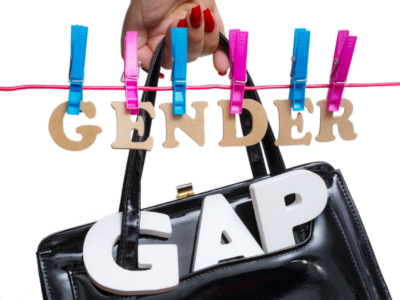Over the last three months, we have seen unprecedented changes in every part of our lives. As the first tentative steps out of lockdown are taken, thoughts turn to what our new ‘normal’ could look like.
Times of upheaval often lead to radical change. Some believe the pandemic is a once-in-a-generation chance to remake society and build a better future. Already we are seeing signs of big change all around.
Much of what we have always been told was impossible is now happening. The homeless are being housed, while many prisoners are being released. Private hospitals are being nationalised, while schools have closed and exams cancelled. Massive government spending is ensuring that people are guaranteed an income if they can’t work, and now there are even whispers of a Universal Basic Income being introduced. It’s not quite a revolution, but it’s a massive conceptual awakening.
But what will some of the more every-day changes look like? We take a look at some of the things we may be getting used to in the near future.
Workers’ Rights and Housing
Coronavirus has put inequality into sharp relief. It’s clear to see how the virus disproportionately affects those already vulnerable, with lower-income workers or those from poorer backgrounds facing much of the brunt.
Those who have the luxury of working from home have been able to go about their business in relative safety. Many of those who have to commute or drive for their jobs, or face not working at all, have had to risk their health to earn a living.
The reality is that many of the front-line workers who have rightly earned our praise and admiration in recent months have had little choice. Workers that have been deemed essential do not see that reflected in their wages or contracts. Should minimum wage really be good enough for a huge group of workers on whom we rely to keep us safe?
One fallout of the crisis is going to be greater demand for a fairer system for wages, contracts and employee protection. Far too many employers have been able to wriggle out of taking care of their workforce when help was most needed.
The housing sector is set for a much-needed shake-up. The government quickly introduced housing laws to boost tenants’ rights in an effort to minimise uncertainty for those affected by the virus. These measures include bringing forward a ban on no-fault evictions, laws ensuring tenants can’t be evicted if they miss rent and three-month mortgage holidays for affected homeowners.
Work and office culture
The transition to working from home may not have been seamless, but now entire workforces and even entire industries have proven that it can and perhaps should be a permanent fixture.
Preconceptions that a home environment may negatively affect productivity have been proven largely misplaced. If anything, the opposite is true. For however long it remains unsafe or unadvisable to commute on public transport, many will resist any demand to do so.
Conversely, many have benefited from a positive change to their routine. Less time commuting has meant more time for other pursuits. Breaking with the regular 9-to-5, a flexible schedule has allowed many to not just endure the sudden change in circumstances, but to thrive. Those with children or care responsibilities may have another story to tell, but this is where flexibility may prove invaluable.
In the next few years, we may see a big shift in how companies go about their business too. The implications of office workers no longer needing to flood into city centres could be significant. Businesses may shift to having smaller, flexible office spaces, or sections of co-working spaces dotted around the country in a far more distributed way. Our crammed Piccadilly Line commute may soon be a thing of the past.
Mental health
For months now, anxiety has for many of us felt like the new norm. There is no doubt that intense upheaval has taken its toll.
In this period of maximum friction, where everything takes more time, more effort and has greater impact, it’s important to remember that we are enduring a crisis and that we should allow ourselves space and patience to endure properly. There should be no shame if personal progression has stalled, in fact, when it takes so much energy to do the basics, giving yourself a break feels like a little mini protest in itself.
As reported in Elle, concerns of a mental health crisis are still growing. Many organisations and charities have seen their helplines overwhelmed, and due to isolation, there are now fewer ways for those in need to seek help.
Whilst things most certainly look a little different than before, it’s important to remember that help is still out there. Many mental health charities have published tailor-made advice for best coping during lockdown.
Like with many things these days, making do is better than doing without. When lockdown officially began, many weekly therapy sessions switched to Zoom. People are realising that meeting online isn’t nearly as impersonal or stilted as imagined.
Perhaps the pandemic has highlighted the importance of flexible mental health services. If anything, it is a timely reminder that we all need to find ways of putting wellbeing first and there are still many ways of doing so.
Climate change
With over 95% of air travel grounded, skies are clearing of pollution. With our despoiling suddenly halted, wildlife is returning with ebullience. Air quality is improving in some of the most populated and polluted places on earth.
It is believed that in Europe alone, the dramatic fall in carbon emissions will likely result in 11,000 fewer deaths from air pollution. If it wasn’t for the circumstances, there would be much to celebrate.
As lockdown confines so many of us to our homes, the ways in we move through, work in and think about our cities are being radically altered. In London, with just 13% of TFL’s service currently operational, Sadiq Khan has been reimagining travel for the post-coronavirus city crowds. Already plans have been drawn up for large parts for the city to be pedestrianised, clearing the way for the safe commute of walkers or cyclists.
The task will be to make such transformations permanent. The coronavirus crisis provides an opportunity to “reinvent our model of economic development to ensure it is more respectful of the environment, said French economy minister Bruno Le Maire.
As city after city begins to emerge from lockdown, The Telegraph reports that urban planners and environmental campaigners are grappling with how to keep the clean air and blue skies that have transformed our view of the world. Will this lead to the green revolution our planet needs? Only time will tell, but people around the world can see change is now possible.
ABL Recruitment team









